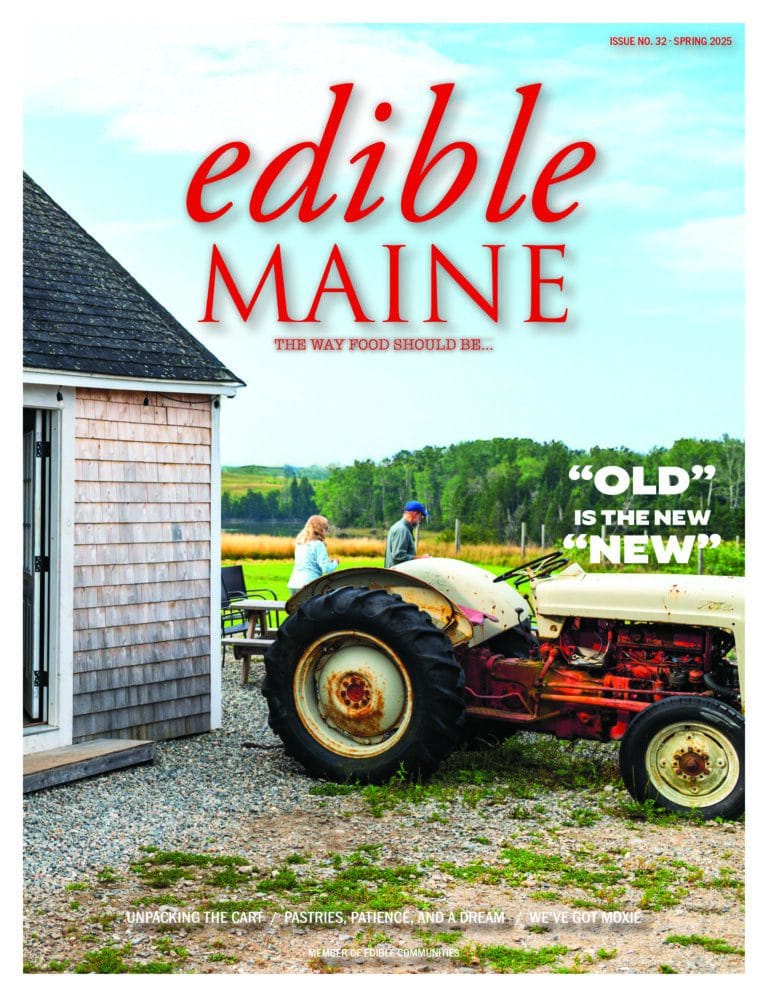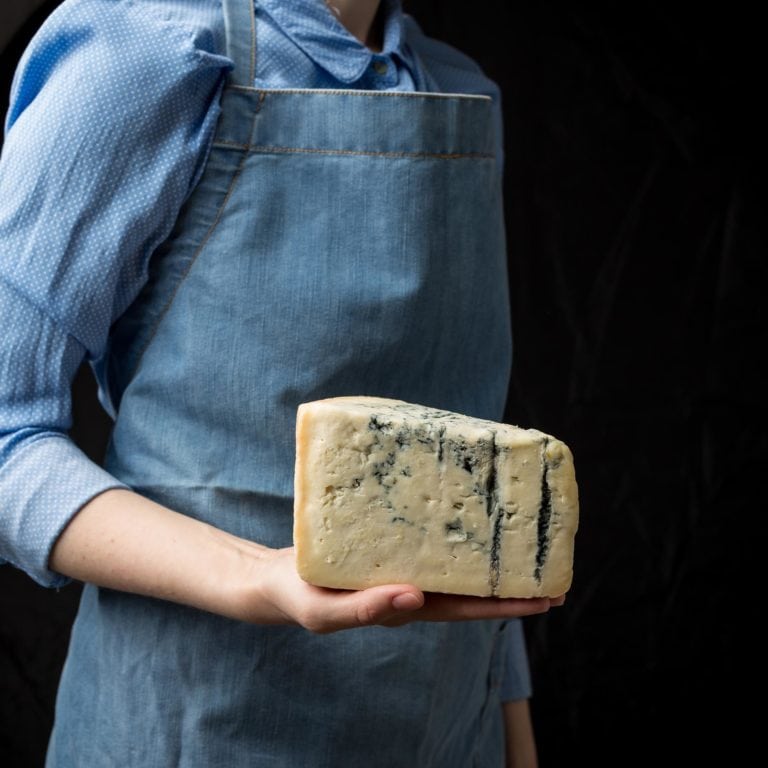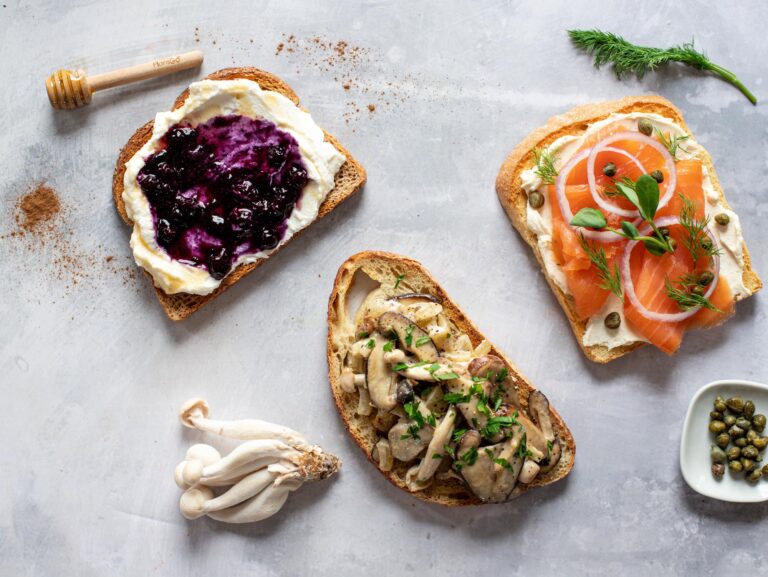A world of flavor is served from the window of a repurposed grain silo at Beth’s Farm Market in Warren. That’s where Dennis McCalla sells plates of Jamaican jerk chicken all summer long.
Sixty-five-year-old McCalla, who was known for the stewed and curry chicken he sold on the bustling streets of Kingston in his native Jamaica, first came to the farm in 2000 as a seasonal worker. Beth’s Farm Market owners Vincent and Beth Ahlholm have a generation-long connection to employees from McCalla’s Caribbean island home.
In 1979, the couple bought a refrigerator, spray painted it red, and filled it with sweet corn. Such were the humble beginnings of Beth’s Farm Market. “We made $98 in one weekend and thought we were loaded!” says Beth, who at the time was pregnant and had a toddler in tow. As the farm market blossomed, Beth says she “was walking around with a baby monitor in my back pocket when Vince said, ‘We need help!’”
The couple tapped into the federal H-2A visa program that enables farmers to employ foreign nationals who want to work in agriculture. In 1989, they employed three farmers from Jamaica, and that number has steadily increased: This season they’re up to 19. “I feel like we’re in a good groove,” says Beth.
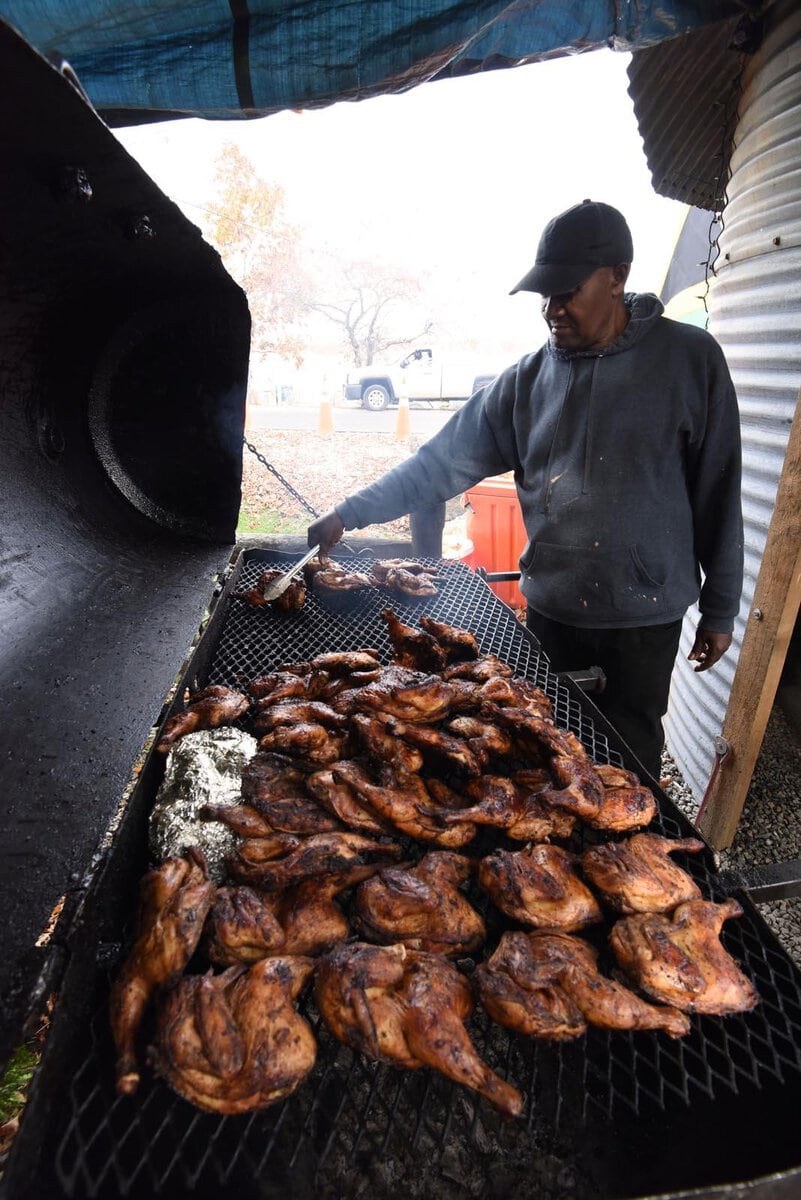
Over time, the growing Jamaican community on the farm has made its mark in Knox County. Okra and callaloo (a leafy green) are grown on the farm due to the workers’ input. Hardo, Jamaican hard dough bread that has a thick, firm crust and a tender, chewy crumb, is featured in the market’s bakery.
Making jerk—a process by which meat is marinated overnight and grilled on a smokeless flame—can be traced back to mid-17th century Jamaica. According to several websites centered on the history of the island nation, jerk is the culinary legacy of two groups of people persecuted there by colonial Europeans. The first group was the Taíno, Arawak people indigenous to Jamaica and the Caribbean who were brought close to extinction by conquistadors. A small number of Taíno managed to survive in the lush, mountainous interior of the island. The second group comprised formerly enslaved Africans, referred to as Maroons, who escaped Spanish and, later, British captors by fleeing to the mountains to join the Taíno.
The meat of animals killed for food in those rough regions of Jamaica—mainly wild boar—was tough. Marinating made it more palatable. Since both groups remained targets for the European invaders, they cooked this marinated meat in smokeless underground pits to avoid detection. Over time, modern Jamaicans began to use the jerk technique to prepare beef, pork, and chicken.
As the Jamaican diaspora spread throughout the United Kingdom and the United States, a global taste for jerk chicken—with its aromatic notes of allspice, thyme, ginger, garlic, cinnamon, and nutmeg; its underlying sweet and smoky flavors; and a heat that comes from Scotch bonnet chiles—took hold.
Upon his arrival in Maine, McCalla made the dish to celebrate the birthdays of his fellow Jamaican farmers. “Everybody in my family is a great cook,” says McCalla, who now lives in Virginia with his wife and daughter when he’s not working at the farm. “It’s a gift.”
McCalla first shared that gift with a wider audience at the farm’s annual Neighbor Night, a music-filled community appreciation event where farm staff serve homemade Jamaican goat curry, jerk chicken, and strawberry shortcake to local folks.
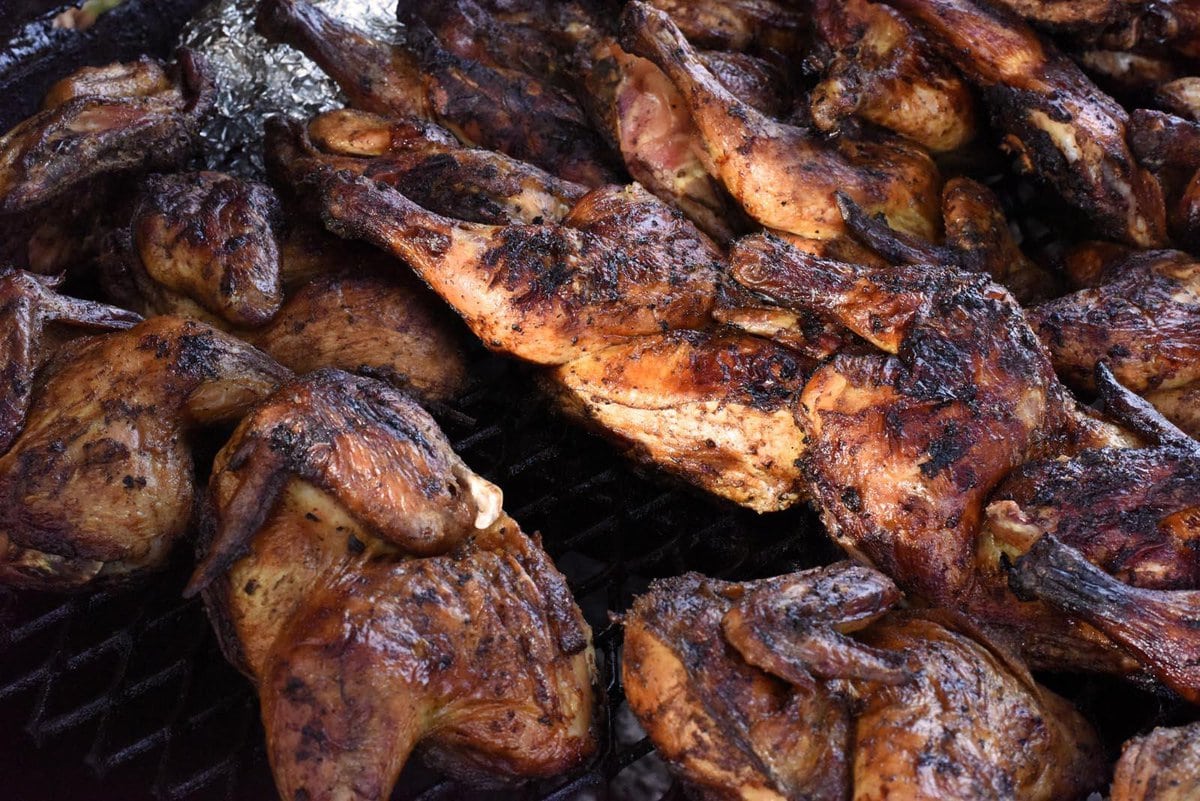
“That’s where it started,” says McCalla, who is as comfortable manning the grill as he is making hot sauce recommendations to newcomers, including one he creates from scratch in a Mason jar. For four years, he’s sold plates of Jamaican jerk chicken, rice, and peas on weekends between July 4 and Halloween.
“People who have been to Jamaica say my chicken is better than what they ate there!” he brags. But McCalla admits he serves more than just food.
“We’re bringing our food and hospitality to this place. It’s good to share your culture wherever you go. It’s a joy to see all these tables filled with people,” says McCalla, who is often found singing along with Bob Marley tunes. “You know what I’m saying? Music, food, people.”
The popularity of McCalla’s meals inspired an upgrade to his setup. A canopy tent was replaced by a tinny silo structure last summer. It’s got both a salt-of-the-earth charm and a sense of luxury for McCalla, who says he no longer gets wet from the rain or burnt from the sun.
When asked about the recipe for his marinating paste, McCalla is coy. Brought from home in his head, the recipe comprises only natural ingredients, and its flavor deepens with time on a charcoal grill. What is in play that gives McCalla’s Jamaican jerk chicken its magic?
“Time is the secret!” he says. He would not divulge the other ingredients in play but said all are welcome to enjoy the finished product.









